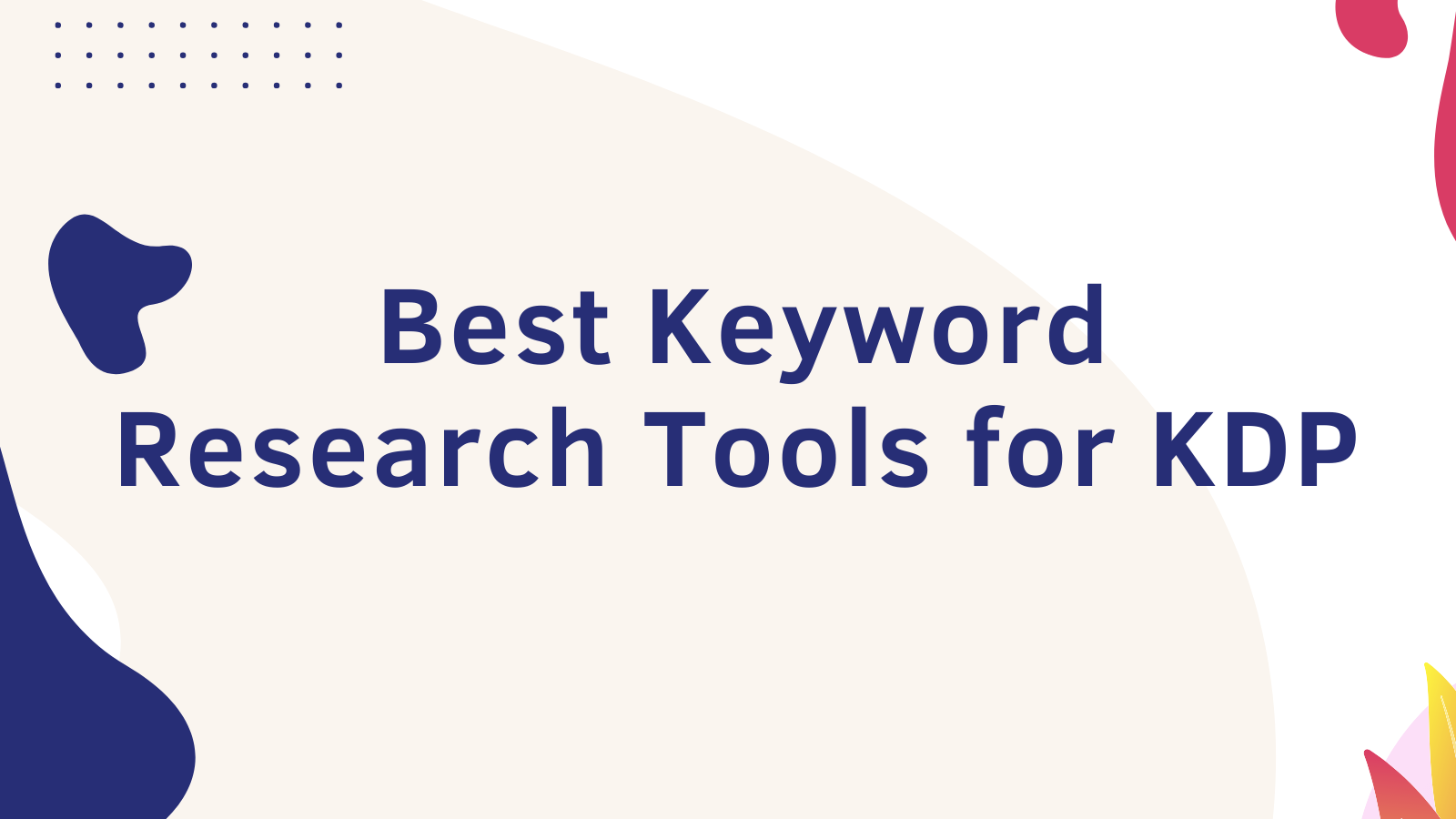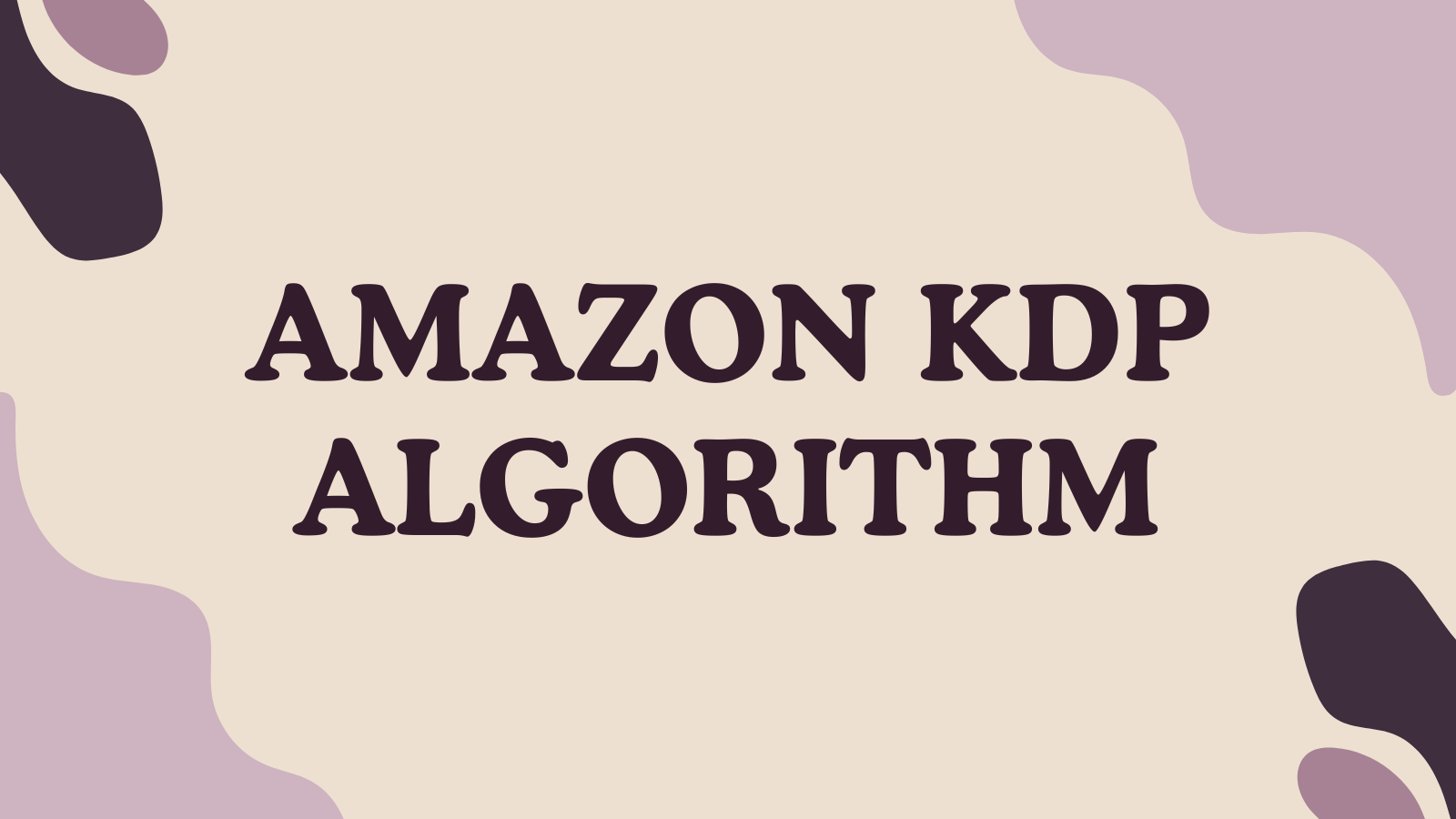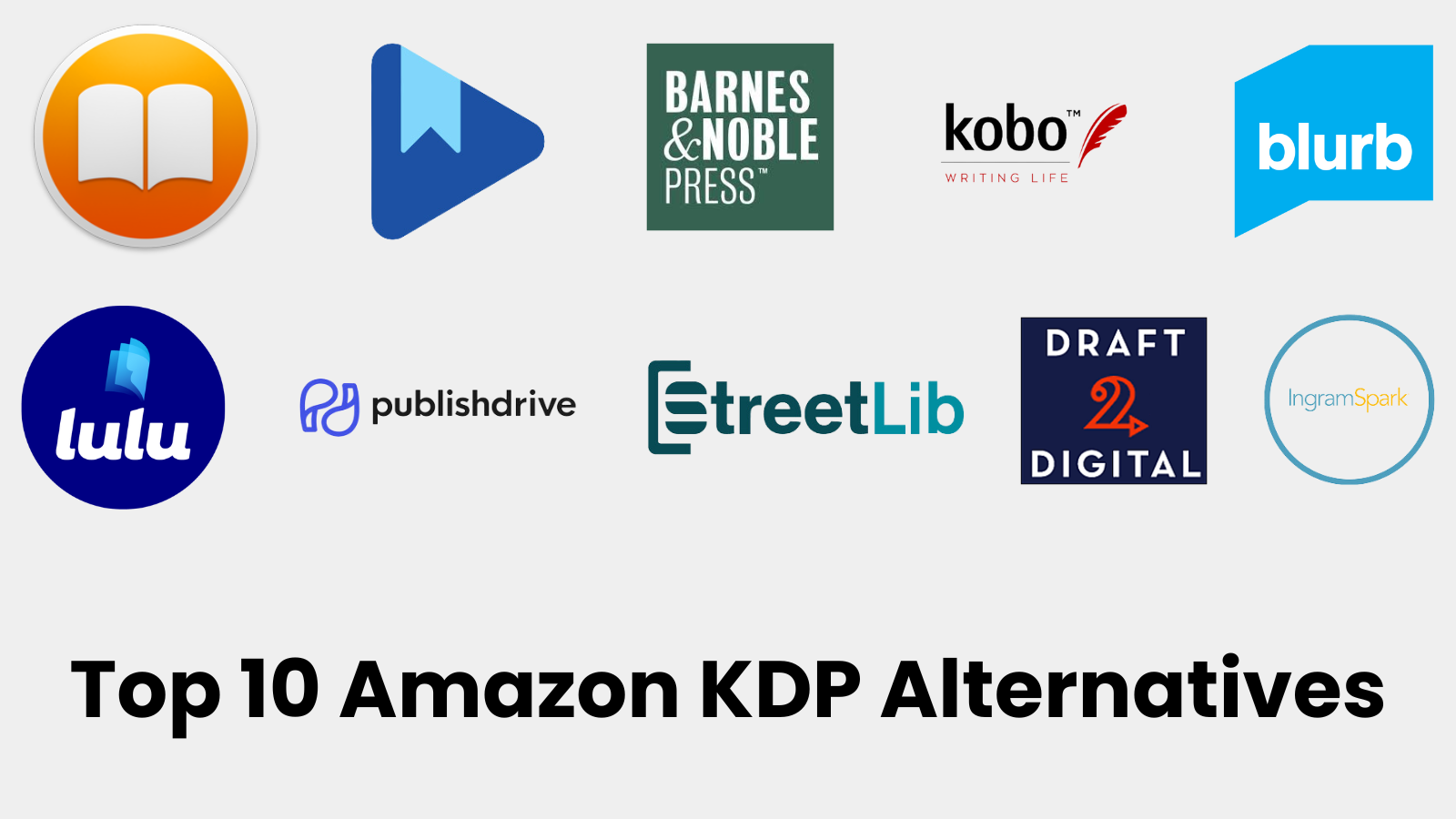Many people ask me about the KDP (Kindle Direct Publishing) tools. They often ask which keyword research tools I use. In this blog post, I’ll share the best Amazon KDP keyword research tools.
I use them to find the best keywords for my self-publishing business. I’ll compare simple and free tools to more advanced paid ones. I’ll compare their features and benefits. This will help you pick the best tools for your needs.
Table of Contents
Best Amazon KDP Keyword Research Tools
Amazon Search Bar
One of the first tools I use for keyword research is actually Amazon itself. I can enter a general search term in the Amazon search bar. This lets me see what customers are searching for and the number of search results for a keyword.
Additionally, Amazon provides suggestions. Customers are typing them into the search bar. They give me valuable insight into popular search terms. This technique is ideal for beginners and can provide a lot of information and insight into what people are searching for.

AMZ Suggestion Expander
Another tool I use for keyword research is a Chrome plugin called AMZ Suggestion Expander. This free plugin provides extra search terms and keywords. It shows what customers type into the Amazon search bar. It saves me time and lets me build a bigger keyword spreadsheet.
The paid version is AMZ Suggestion Expander Pro. It lets you download keywords and see the approximate Google searches per month for a keyword. This feature can help identify popular keywords and save time when analyzing search results.

Keywords Everywhere
Keywords Everywhere is a Chrome plugin. It gives valuable data about search terms. This includes the approximate number of Google searches per month. Also, the cost per click on Google for advertising a keyword and the competition ranking. It requires payment for search credits. A hundred thousand cost one dollar per month or twelve dollars per year.
This tool also estimates the number of Google searches per month. It covers the last twelve months. It is a valuable resource for keyword research.
Features of Keywords Everywhere:
- Approximate number of Google searches per month
- Cost per click on Google for advertising a keyword
- Competition ranking
- Estimate of the number of Google searches per month over the last twelve months
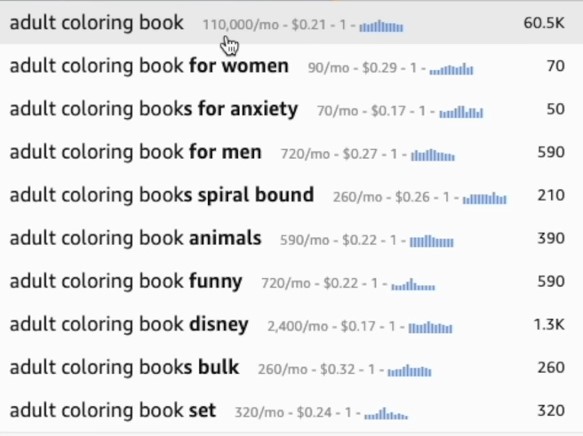
Publisher Rocket
Publisher Rocket is a paid tool. It provides valuable data for keyword research, including the estimated number of Amazon searches for a keyword. This tool is available for a one-time payment of ninety-seven dollars, with no subscription required.
Also, Publisher Rocket offers useful data. It includes the average book length, the number of competitors, and the monthly earnings of books in specific niches. Publisher Rocket has a competitive score feature. It lets users gauge the competition for a keyword.
Benefits of Publisher Rocket:
- Estimated Amazon searches per month
- One-time payment with no subscription
- Useful data on book statistics and earnings
- Competitive score feature to assess competition
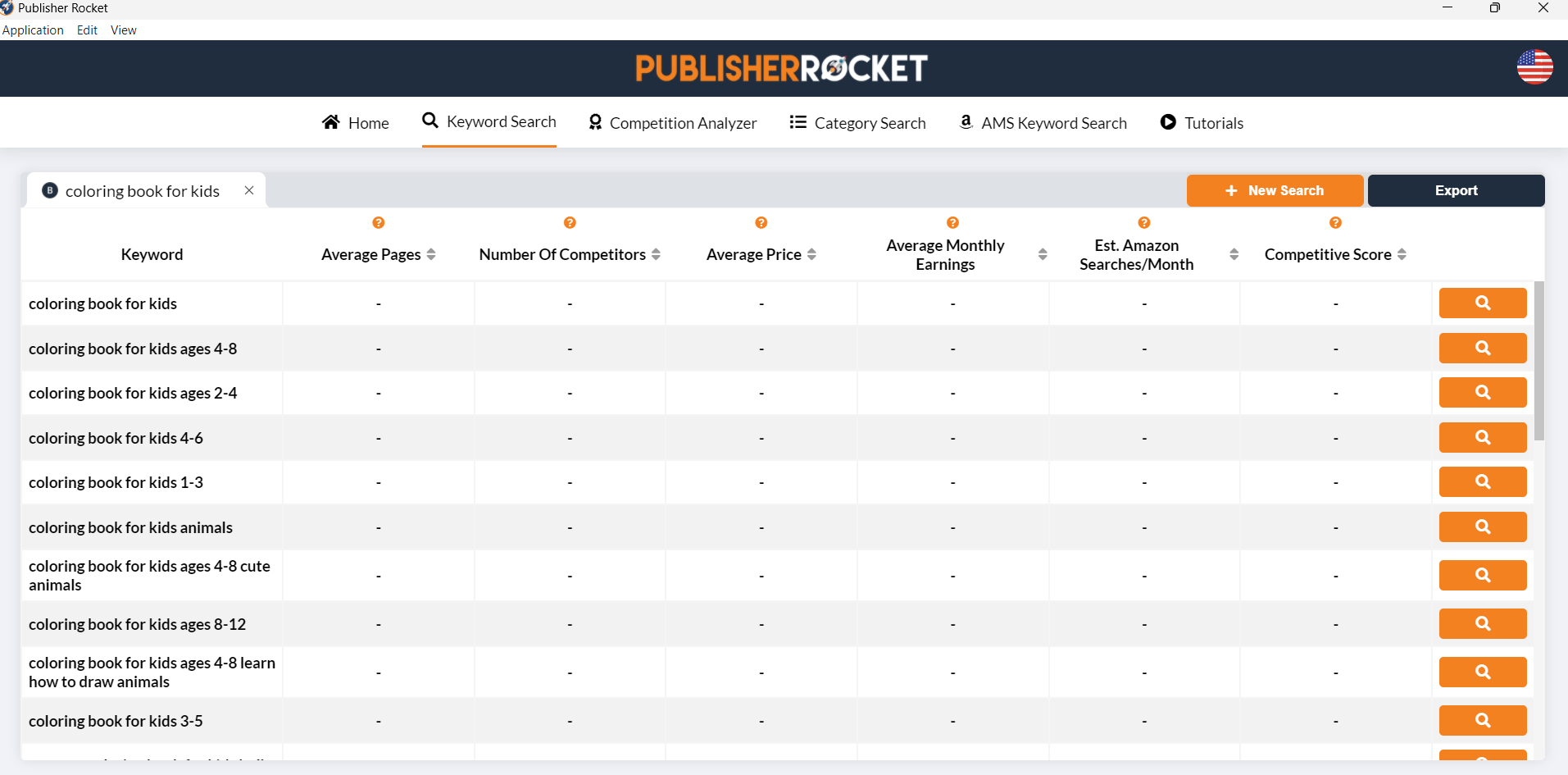
Helium 10
One of the most powerful keyword research tools in my arsenal is Helium 10’s Magnet. This tool offers many keywords related to a topic. They give insights into the search volume on Amazon and the magnet IQ score, which shows competition. Magnet has over 7,500 keywords for a single search. It’s invaluable for finding popular keywords and improving book listings on KDP.
Also, the word frequency feature helps fill out the seven keyword boxes when uploading a book to KDP. It ensures that the chosen keywords are both popular and relevant to readers.
Key Features of Helium 10 – Magnet:
- Generates over 7,500 keywords for a single search
- Provides search volume on Amazon
- Offers the magnet IQ score to assess competition
- Word frequency feature aids in filling out keyword boxes on KDP
Keyword Research Advice
My advice for beginners in the publishing industry is to keep it simple and start with the basic Amazon search bar. As you get more comfortable with using keywords and see their positive impact on your book rankings, consider adding tools. For example, try Keywords Everywhere or AMZ Suggestion Expander.
Once you gain more experience and start earning, you can explore more advanced tools like Publisher Rocket or Helium 10. When using multiple keyword tools, avoid comparing the numbers you get from each tool. Instead, focus on comparing the figures within a particular tool to gain more useful insights.
It’s important to work your way up and gain experience before investing in multiple tools at once.
My Keyword Research Tips:
- Start with basic tools like the Amazon search bar
- Gradually add more advanced tools as you gain experience
- Avoid comparing numbers from different tools
- Focus on comparing figures within a specific tool
- Work your way up and invest in tools as you earn more
New to KDP? Start Here
If you’re new to KDP (Kindle Direct Publishing) and want to start with keyword research, begin with the basic Amazon search bar. This tool is simple. It can provide valuable insights. It shows popular search terms and customer preferences. As you learn more about keyword research, you can use extra tools and resources.
They will help your strategy and boost your book rankings on Amazon. Take your time to learn and grow in publishing. Consider buying better tools as you gain experience and see results.
Conclusion
In conclusion, finding the best keywords for your KDP books is vital. They improve search rankings and boost visibility on Amazon. You can use free and paid keyword research tools. They will help you learn about customer preferences. With them, you can improve your book listings for success.
